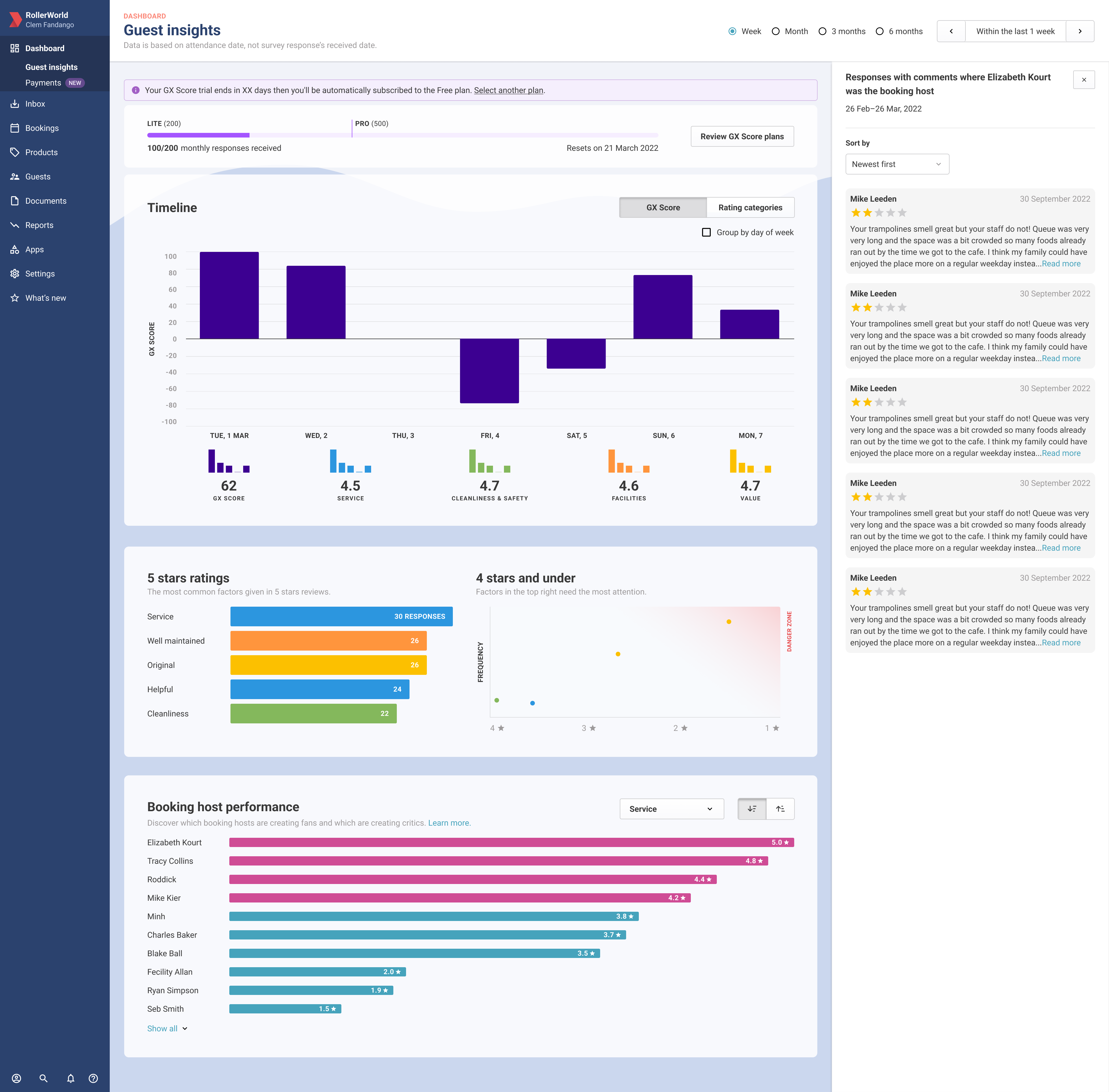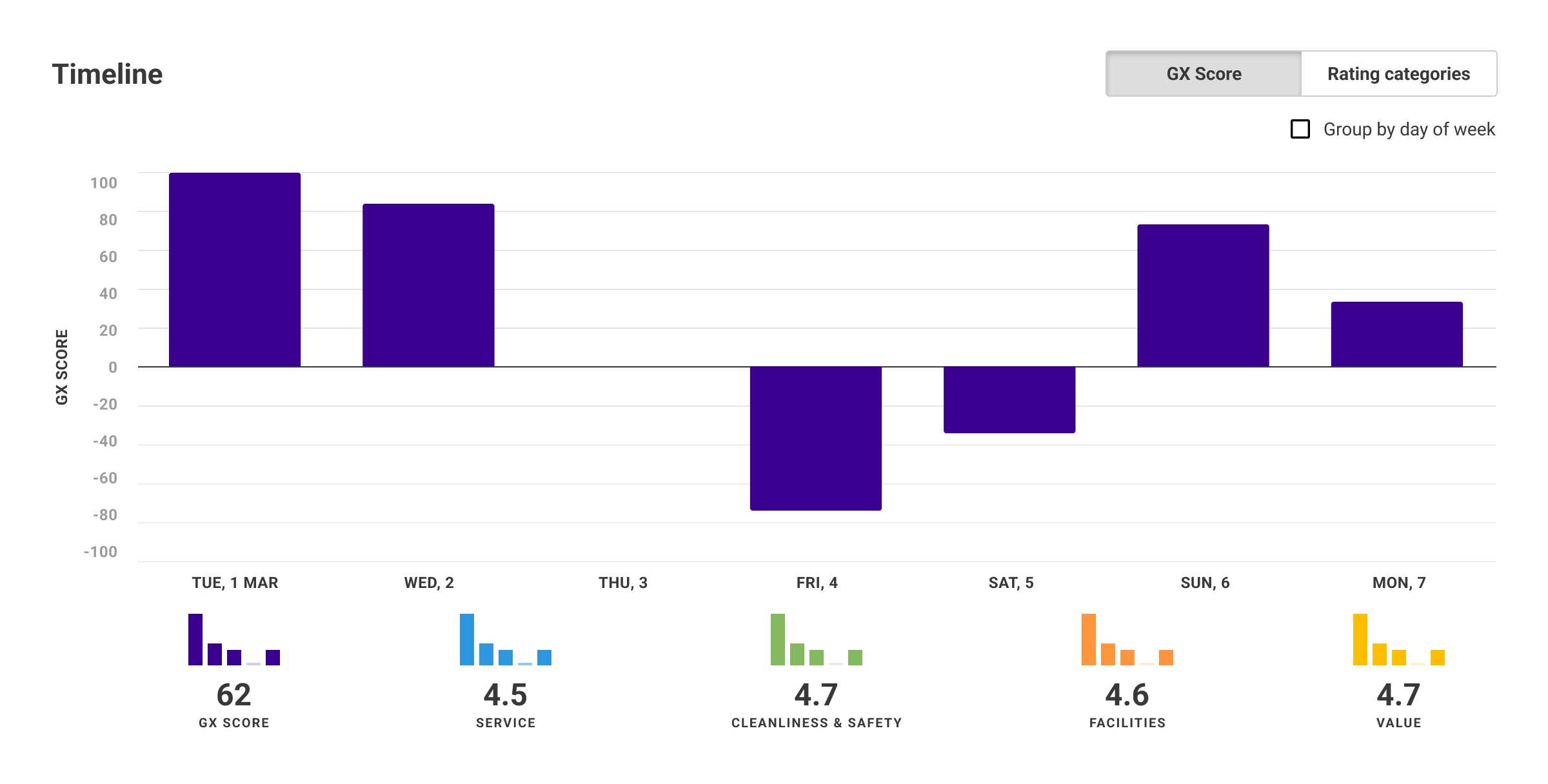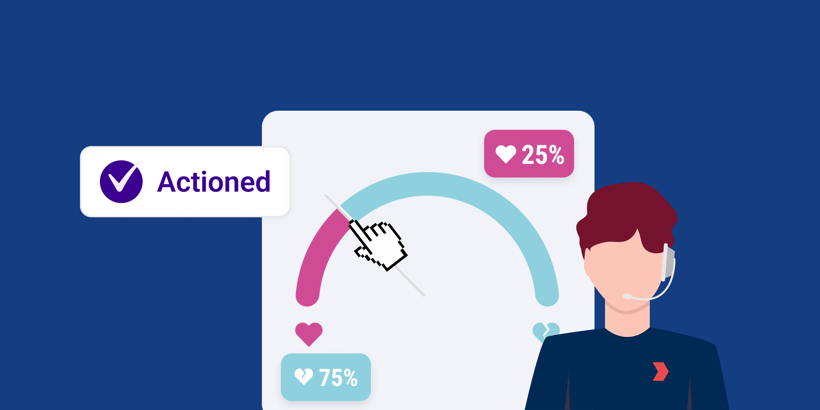Welcome to the third episode of our Guest Experience webinar series!
In the first episode of our Guest Experience Webinars, we spoke about the importance of creating a feedback culture and the value it can provide your business. We heard about uncovering your blind spots, strengthening your relationship with your guests, how feedback is imperative to growth and innovation, and examples of how to build feedback into your business.
In the second episode, we explored methods to effectively collect guest feedback and how to avoid some pitfalls in standard feedback collection methods. We heard from Chris Leeden, the product manager of the Guest Experience Score (GX Score), who explained the challenges in effectively collecting guest feedback, and how to categorize feedback to get more significant insights.
In this episode, we explore how to effectively manage guest feedback to turn critics into fans, improve your business’ image and attract more guests to your venue.
How negative feedback can impact your business’ image
Think about how many guests come across your business online daily — through word of mouth or Google search. Either way, they’re likely to search your business and quickly find some online reviews.
Online reviews have a significant impact on your business. As many as 22% of prospective guests can be lost when they stumble upon just one negative review, a whopping 85% trust online reviews as much as personal recommendations, and reviews are the 5th most significant parameter for local search engine rankings.
So, it’s critically important to maintain your reputation online and minimize negative feedback where possible.
Common negative feedback (and how your venue can recover)
1. The service was disappointing
Service is the highest correlating factor to guest satisfaction. 88% of guests say the experience a business provides is just as important as their products or services. So when the service is unsatisfactory, your guests will likely go elsewhere.
How to recover
The aforementioned guest sentiment speaks to our previous webinar discussions around creating a feedback culture and how important this is. And also to the importance of ensuring that your staff are aware of guest feedback so they can provide excellent service.
2. Surveys were sent at the wrong time, or too late
Surveys are a great way to discover how your guests really feel about your venue, but they won’t help you if your guests don’t complete them. And this is what typically happens when surveys are sent at the wrong time.
How to recover
By sending guest surveys in a timely manner – an hour after their session or at 5 pm that day – guests feel like the venue was being proactive and that they have an outlet to voice their concerns before going onto social media.
A number of our GX Score customers reported significantly less negative feedback posted on public review sites due to surveys being sent at the right time. Some of our customers even saw a 20% reduction in negative feedback online after switching to the GX Score.
3. No response to, or attempt to remedy, negative feedback
While not negative feedback per se, guests have also commented on their dissatisfaction regarding not receiving a response to, or remedy for, the negative feedback they’ve provided.
How to recover
Quickly responding to negative feedback dramatically improves the chances of turning a critic into a fan. In fact, 80% of guests who had a negative experience will return if their feedback is met with excellent customer service.
That’s why ROLLER built instant notifications into the GX Score, because the faster you respond to guests, the higher your chances are of turning their reviews around.
When you receive negative feedback, it’s also important to see it as an opportunity to improve and repair a relationship with a guest – we’ve even heard stories of venues turning a critic into a member! And when you think about the fact that returning guests spend 67% more than new ones, it’s easy to see the impact each recovered critic can have on your bottom line.
4. The party host’s service was disappointing
Lastly, many guests expect venues to deliver an exceptional party or group booking experience, so you are left with unsatisfied guests and negative feedback when this doesn't happen.
How to recover
Monitoring guest feedback for party hosts is essential to ensuring that your staff gives the white glove experience that guests expect.
ROLLER has built analytics into the GX Score tool to help you better understand how each party host performs. With this tool, you can identify where hosts may not be meeting expectations. And also, you’ll be able to see where your staff are doing well, so you can give praise and encouragement for a job well done.
How to address negative feedback directly with guests
1. Know all the context around your guests’ feedback before responding
If you don’t see the context in which guests leave their feedback, it is hard to appreciate their perspective and determine what to do with it.
Some examples of the context needed to understand guest feedback better include knowing:
- When the guest visited
- What type of ticket/s they purchased
- Any food or beverage items they bought
- How often they visit, and
- Their contact information
Because the GX Score is fully integrated into ROLLER, it captures guest booking data and their complete purchase history, including all of the above information. Meaning you’ll have all the context surrounding your guests' feedback at your fingertips.
Additionally, the GX Score also asks guests for their feedback in four key categories:
- Service
- Facilities
- Safety and cleanliness, and
- Value


The GX Score will then provide this information to you in instant alert emails when a guest leaves negative feedback, so you are well-equipped to address their concerns.
2. Craft your response with all available guest data
After you receive your instant alert email, and with all of the above context you have around your guests’ experience, you can start a conversation by saying something along the lines of:
“Hi Joe, I noticed you visited our venue today with your family and were unhappy with our service. You’ve been to our venue several times, and I want to apologize for not meeting your expectations today. I’d like to offer you 50% off your next visit. Is there anything else we can do to make it up to you?”
3. Show appreciation for their feedback
Whether the feedback is given positively or negatively, all feedback is essentially good feedback. Feedback provides invaluable insights into how your operations are really going and what will keep your guests returning for more.
So with that in mind, show your guests appreciation for every kind of feedback they leave you. They will feel like valued guests, and responding in this way quite literally leaves the door open to them considering coming back to your venue.
ROLLER customer success stories after making changes based on negative feedback
A few examples of some of our customers who’ve grown from negative feedback include:
- A venue had complaints about their food and beverage options, which led them to change their menu and better accommodate their guests tastes.
- Another venue realized that their marketing was giving guests the wrong impression of their experience, so they made some changes to their website to better articulate their experience.
- A venue operator realized and made changes accordingly when they found that while their front-of-house staff provided an exceptional experience, guests did not feel the same way about some of the staff running safety briefings.
Maintain your reputation by encouraging guests to leave positive feedback
A tool like the GX Score tool helps venues reduce the amount of negative feedback they receive online, but it’s also vital to encourage guests to leave positive feedback as well.
For any guests that leave positive feedback, the GX Score works to amplify that by encouraging guests to post their reviews on public review sites like Google, Facebook, TripAdvisor, and Yelp. The GX Score does this automatically, so it’s as simple as configuring it in the GX Score settings. Then, when a guest leaves a positive review, it immediately encourages them to post that feedback publicly.
As mentioned previously, adding these positive reviews not only helps you to maintain your reputation online, but they also assist in increasing your search engine rankings. And finally, these reviews act as social proof for guests considering visiting your venue, so they are invaluable.
Remember, online reviews heavily influence more than 90% of people, so it’s equally important to showcase your positive reviews as manage your negative ones.



